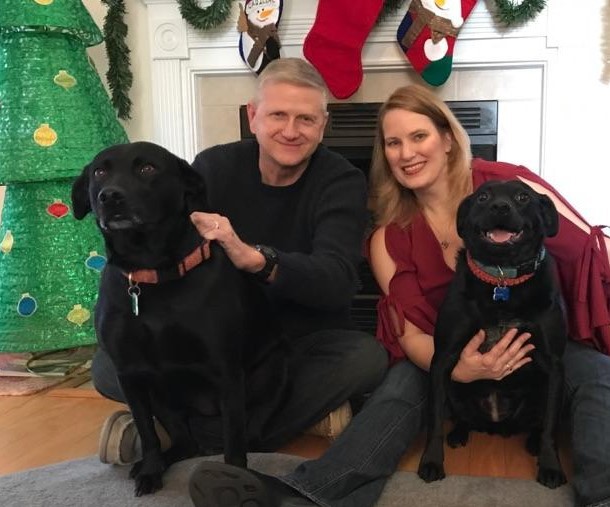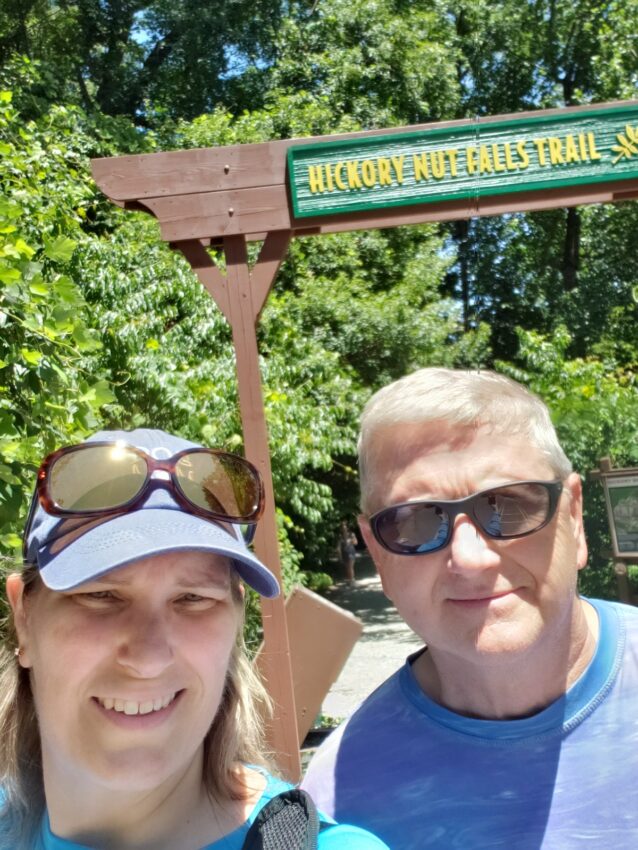
Robert “Bob” Harding, 60, of Angier, thought he had developed a blood blister on his back in February, 2021. He had never been a sun worshipper, never went to tanning beds or spent long hours exposed to UV light.
His light skin and fair hair were a risk factor, though, and he was diagnosed with Stage 3A melanoma barely a month or so later. “It was a small place on my back, and it wasn’t related to a mole or anything. It looked like a blood blister. It stayed for a month, got a little bigger, then I went to my dermatologist in Clayton and had them look at it,” he said. “They were concerned and did a biopsy that came back as nodular melanoma.”
That diagnosis started Bob on a cancer journey that brought him to the experts at the North Carolina Cancer Hospital, the clinical home of UNC Lineberger. A self-proclaimed “NC State guy,” Harding said he hadn’t considered UNC as an option until his doctors referred him to Chapel Hill.
UNC Lineberger’s David Ollila, MD, performed surgery on Harding and found two affected lymph nodes, and he’s now under the care of UNC Lineberger’s Fran Collichio, MD, and Nancy Thomas, MD.
Collaborative, multidisciplinary care
“Throughout the whole ordeal, whether it was one doctor or another, they worked together well, like a well-oiled machine,” he said. “It was so impressive to see it all come together. My health care has been wonderful, from the time you walk through the door, you are treated with respect.”
After surgery, Harding was on medication for six months to minimize the risk of recurrence. He finished in January but will continue with follow-up visits for the next couple years. “I feel great. I’m able to do the things I did before, and even while I was in treatment, I had no major side effects,” he said. “I continued to work, to walk every day, and I had no issues, no problems.”
New habits for cancer prevention

While Harding’s journey with cancer has been straightforward, he’s taken on a few new habits when it comes to the sun and enjoying time with his wife and their two dogs at their beach house on the N.C. coast.
“I have a ritual of using sunscreen every day, and I wear long sleeves for everything outdoors. I wear a hat, and I’ve always been somewhat vain and would not wear a floppy hat outside, but now I do,” he said. “My beach times have also changed, and I go out in the morning and the afternoon, instead of the middle of the day.” Harding has also become more vocal in warning his friends about the sun, and to get any strange spots or skin changes checked out by a doctor.
“The bigger thing was how easily it crept up on me and how easily it happened. It was such a small place originally, and it didn’t go away,” he said. “I think back that in a month or so, I went from having a place on my back to having cancer. What if I had waited? I just know with my friends I’ve been outspoken about it; I tell my friends to go get checked.”
While Harding hopes others won’t have to experience what he did, he knows there are other people out there who may be going through the same thing. “I think it is important to be positive, and don’t let it get you down,” he said. “I would recommend trusting your physicians and asking questions. The entire staff that I have worked with have been very gracious in providing good information and answers. Especially Dr. Collichio and her team. I can’t say enough good things about them.”
